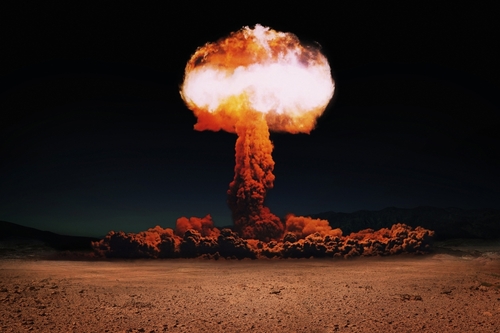
In an era where the specter of nuclear conflict looms larger than ever, the potential for devastation on an unimaginable scale is a stark reality. The chilling scenario of a nuclear attack, particularly one originating from North Korea, presents a grim tableau of the immediate and long-term consequences that could ensue. This analysis delves into the multifaceted aspects of such a dire situation, underscoring the paramount importance of diplomacy and strategic foresight to avert catastrophe.
The notion of a nuclear war so devastating that survivors would envy the dead is not mere hyperbole but a harrowing possibility grounded in declassified documents and expert analyses.
Sharing this nuclear war video is the most important thing you can do to prevent nuclear war. Thankpic.twitter.com/MQAbTNEUwt
— Patriot (@resistence777) April 3, 2024
These documents paint a vivid picture of Armageddon, where a lightning attack could leave the U.S. President with a mere six minutes to decide the fate of the world. The aftermath of such an attack would be catastrophic, with sewage systems failing, dams bursting, and the obliteration of infrastructure leading to mass casualties and environmental ruin.
The immediate effects of a nuclear strike are horrifying enough, with millions perishing in the initial onslaught. However, the long-term implications are equally dire, with the destruction of critical infrastructure and the dispersal of radioactive materials causing lasting damage to the environment and human health. The scenario of a retaliatory strike involving 82 nuclear warheads against North Korea further illustrates the potential for escalation into a full-blown nuclear exchange, which could lead to tens of millions of deaths on the Korean peninsula alone.
'Nuclear war' isn't covered under most insurance policies so this isnt new. https://t.co/Du1GLmP6BI
— Canadian Prepper (@PrepperCanadian) April 8, 2024
Amidst this bleak outlook, the role of diplomacy and international cooperation becomes all the more crucial. The fact that nuclear-armed nations maintain back-channel communications to inform one another of ballistic missile tests highlights the understanding that no one wants to start a nuclear war by accident. This system of checks and balances, while not foolproof, serves as a vital mechanism to prevent misunderstandings and accidental escalations.
The challenges of discerning intentional attacks from accidental ones and the difficulty of intercepting incoming missiles underscore the precarious nature of nuclear deterrence. The failure of deterrence, as illustrated by the hypothetical scenario of a submarine-launched ballistic missile attack, emphasizes the need for robust defense systems and the importance of maintaining open lines of communication with potential adversaries.
In conclusion, the prospect of nuclear war, with its capacity to annihilate civilizations and irrevocably alter the course of human history, necessitates a recommitment to diplomatic efforts and international treaties aimed at nuclear disarmament and non-proliferation.
The lessons drawn from declassified documents and simulations of nuclear conflict scenarios must inform policy decisions and strategic planning to ensure that such a nightmare scenario remains firmly in the realm of fiction.
What are your thoughts on this developing situation?
We want to hear from you! Please comment below to share your perspective.











